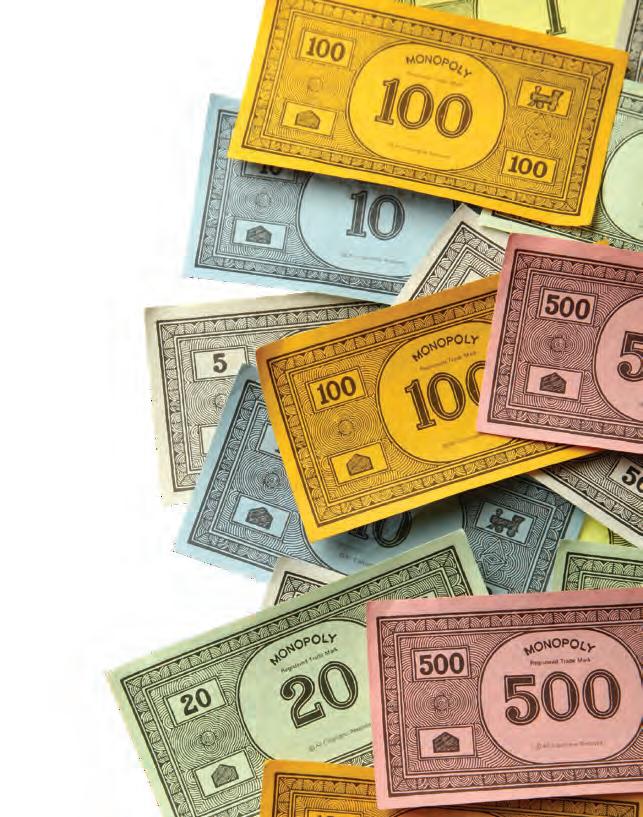
7 minute read
PERFORMANCE CLINIC
Amiral Gestion’s contrarian Sextant PEA fund was blown off course in mid-2018 but manager Julien Lepage isn’t about to change tack. He tells Victoire Barbin Perron why pushing through squalls ultimately brings rewards
As befits the name, Amiral Gestion’s once €3.8bn flagship fund, Sextant PEA, has set the course and philosophy of the French boutique as a whole. Launched in 2002, the European small- and midcap strategy followed a Warren Buffettinspired philosophy and hit its heights of outperformance in summer 2018.
‘The fund increased tenfold in the course of 15 years,’ says Julien Lepage, who has managed the fund since 2004 and is a managing director at the Paris-based group. The France-domiciled strategy has returned close to 825% from inception to the end of January 2020. However, it began to falter in August 2018 and lost 7% in Q3 alone, as well as dropping close to 15% in Q4.
Lepage identifies three culprits for this sudden downturn: the market; the poor returns from Europe’s small-cap sector; and the fund’s value tilt.
‘Even though I do not like to put the fund’s management in a box, especially with a term which holds so many different layers, I must say that the core of our management is value, which did not help recently’, he says. It’s well known that value investing has been out of favour in recent years, although this hurt a fund primarily focused on growth. However, that growth market – namely small companies looking to accelerate – also struggled. Over three years to December 2019, the MSCI Europe Small Cap index rose 33.35%, which represents half of its five-year gains, which were 68.48 %.
Lepage also cites a challenging market, but the fund struggled to keep pace with its peers. Over the three-year period it managed a 0.2% return versus 20.6% from the average manager in Citywire’s Equity - European Small & Medium Companies
Julien Lepage Amiral Gestion
sector, which is home to 224 funds. Lepage acknowledges the shortfall. ‘A couple of our counterparts have galloped, especially those who had more liquidity, and growth managers who benefited from the market’s growth opportunities,’ he says.
STAYING THE COURSE Despite sitting near the bottom of his peer group on both one- and three-year measures, Lepage believes in the longterm viability of his fund and does not plan to deviate from its core aims, which are categorised as ‘pure stock-picking’ with an emphasis on long-term winners.
Visitors to Amiral Gestion’s website are reminded to think in five-year time spans and the numbers bear out this faith, as it has consistently outperformed since 2015. Lepage points to the strong returns since inception as well, as the fund has returned almost double the MSCI Europe Small Cap TR in the 16 years he’s been running it.
‘Our approach is not based on opinions, sectorial motions or on macro,’ he says. ‘We manage long-term. In other words,
we would rather stick to our philosophy and our processes, than make knee-jerk adjustments.’
Lepage sums up his philosophy as investing in companies that have potential to add value in the long-term. ‘The process consists of finding original ideas,’ he says. The fund currently holds about 88 positions, with key weightings in French retail group Casino, French holding company Financière Odet and Belgian technology firm Econocom. About two-thirds of the fund is in French stocks but the sector split is more diversified, with retail, services, finance and industrials the only areas to get double-digit exposure.
SEASONED SKIPPER Part of the reason Lepage has faith in his long-term abilities is due to his personal experience. He learnt the hard way about chasing the hype when he worked through the dotcom boom of the early 2000s. Lepage was in his early 30s and working at another French group, Exane, when this market started to soar and he quickly became aware of the need placate disgruntled clients while maintaining their investments.
From that time, Lepage recalls stocks such as France Telecom – now known as Orange – and Dasso Systemes, which is part of the Dassault Group, being among the telecoms that were rocketing. However, he rightly tried to dampen investor enthusiasm. ‘As sellers at Exane, we were calling clients to sell their holdings in diverse telecoms during the tech bubble. Clients were extremely upset given that the prices were going up on the market by 5% every day.’
This experience of holding your nerve is apparent in his contrarian positioning today. As recent events have shown, this stance doesn’t always work, as his exposure to
another telecoms group, Iliad, lost value in 2019 and weighed on annual returns. The share price started dropping at the end of 2018, and lost 29% by spring 2019.
Despite the fall and the criticism that followed, Lepage and his team stood their ground. By the end of 2019, the performance had doubled and in February this year, the value of Iliad had risen further, gaining 15% since the end of 2018.
Likewise, when Lepage’s team first invested in home cooking service HelloFresh, the stock price rose, only to quickly lose value. However, in Q4 2019, this company was one of the fund’s main performance drivers with a positive contribution of 190 bps.
While Lepage may have nerves of steel, not all his investors are so unflappable. Since August 2018, fund outflows have been continuous and amount to around €128m to the end of February 2020 and the fund has now dropped to €235m from its once multi-billion size.
Lepage is largely unfazed, as he believes those who have been invested with Amiral for the recommended length of time know what is going on. ‘Our historical clients, who know us, and who lived through crashes do not have a problem. New clients ask more questions if they haven’t known the market for long,’ he says. In addition, he says opportunities are emerging elsewhere, as last year, for example, the team won a mandate to run a strategy on behalf of France’s largest pension reserve fund, the Fonds de Réserve pour les Retraites, to cover French smaller companies.
Lepage lags badly over 1 year...
MSCI Europe Small Cap GR EUR TR % Jan-19 -5 0 10 20 25 5 15 Sextant PEA A TR %
ALL HANDS ON DECK At the moment, Lepage says he’s not being swayed by any big-picture views: ‘As 100% bottom-up investors, we are not implementing any macroeconomic forecasts in our strategy for 2020.’
This involves steering clear of emerging ideas or going big on technology stocks, although the fund had a 6.3% allocation to the sector according to its January filing. While the emphasis remains on finding ‘pure’ ideas that can be bought regardless of wider market conditions, Lepage says Amiral is still aware that there are market aspects to watch for, namely the US, since prices are high, as well as the impact of the negative rates.
Perhaps in defiance of the market’s negative rates, and to boost the fund’s performance, Lepage has been bolstering the Sextant PEA team recently. In 2018, Amiral hired a fresh face in the industry, Paul Manigault, who joined the team as a financial analyst after his graduation from HEC Paris.
Meanwhile, at the start of 2020, the
team decided to reinforce its
small-cap expertise with the hire of Sebastien Ribeiro, a specialist in French smaller companies.
These hires may go some way to addressing some of the concerns that hurt recent performance, while staying true to the longer
term, five-year view. Rendez
vous in 2023 to see his next set of five-year performance figures.
... but his 5-year returns are better
MSCI Europe Small Cap GR EUR TR % 80
60
40 Sextant PEA A TR %
20
Jan-19 0
Jan-20
Citywire Verdict
Nisha Long Head of Cross-Border Investment Research
Has the manager encountered these problems before? From February 2014 to September 2018 Lepage was consistently rated by Citywire for his rolling three-year risk-adjusted returns over all the strategies he ran. However, he lost his rating in October 2018 and has since struggled to keep up with his peers in the Equity – European Small and Medium Companies sector. He has also had bouts of underperformance further back due to market downturns. For example, the Sextant PEA fund lost 58.4% in euro terms but was able to pull back the following year with returns of 61.8% in 2009.
The second run of discrete-year negative returns came in 2011 when the fund lost 11.6%, but Lepage regained these losses in 2012 returning 15.7%. However, this recent bout of negative returns is different. In 2018 the fund lost 18.2%, but in 2019 he wasn’t able to recoup all losses and returned 11.7%.
Can he turn it around? Lepage is sticking to his strategy, which he believes can deliver over a five-year time horizon. That said, the fund has still lagged its peers and its Citywireassigned benchmark over the five years to the end of January. It is important to note that growth has trumped value investing over the last few years so the fund is likely to continue encountering unfavourable market environments.
With no defined strategy going into 2020 this may pose a problem if markets catch investors by surprise, as they did in Q4 2018. Knee-jerk reactions are not to anyone’s advantage, but working out what has and hasn’t worked would be a good exercise for the managers to help them re-evaluate their portfolio. For example, holding onto losing stocks for too long, and not reducing certain positions has dented performance.





